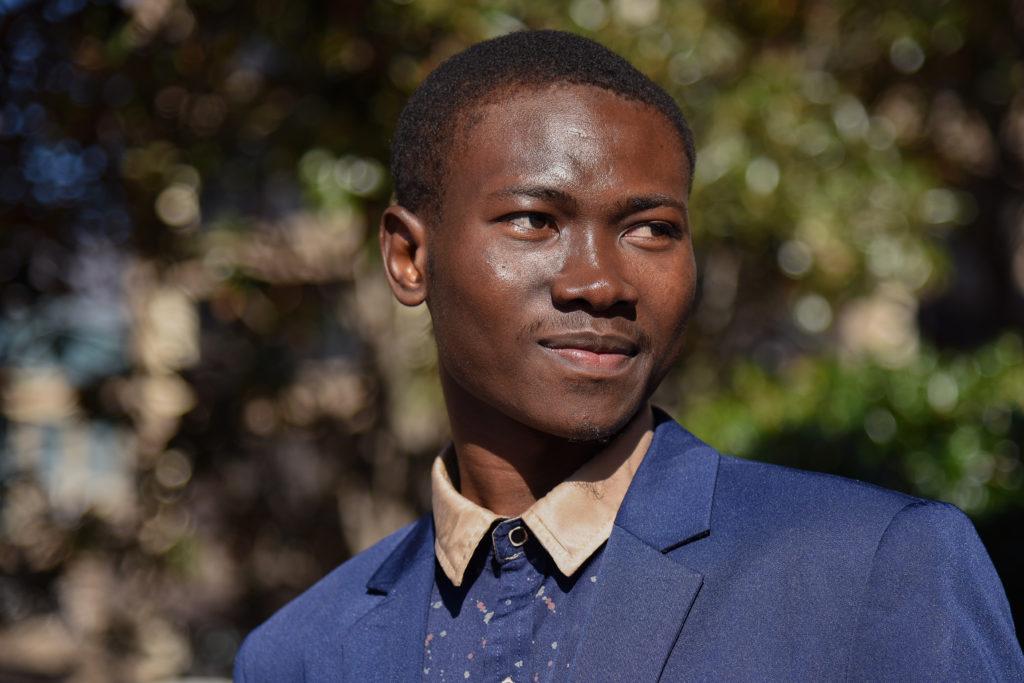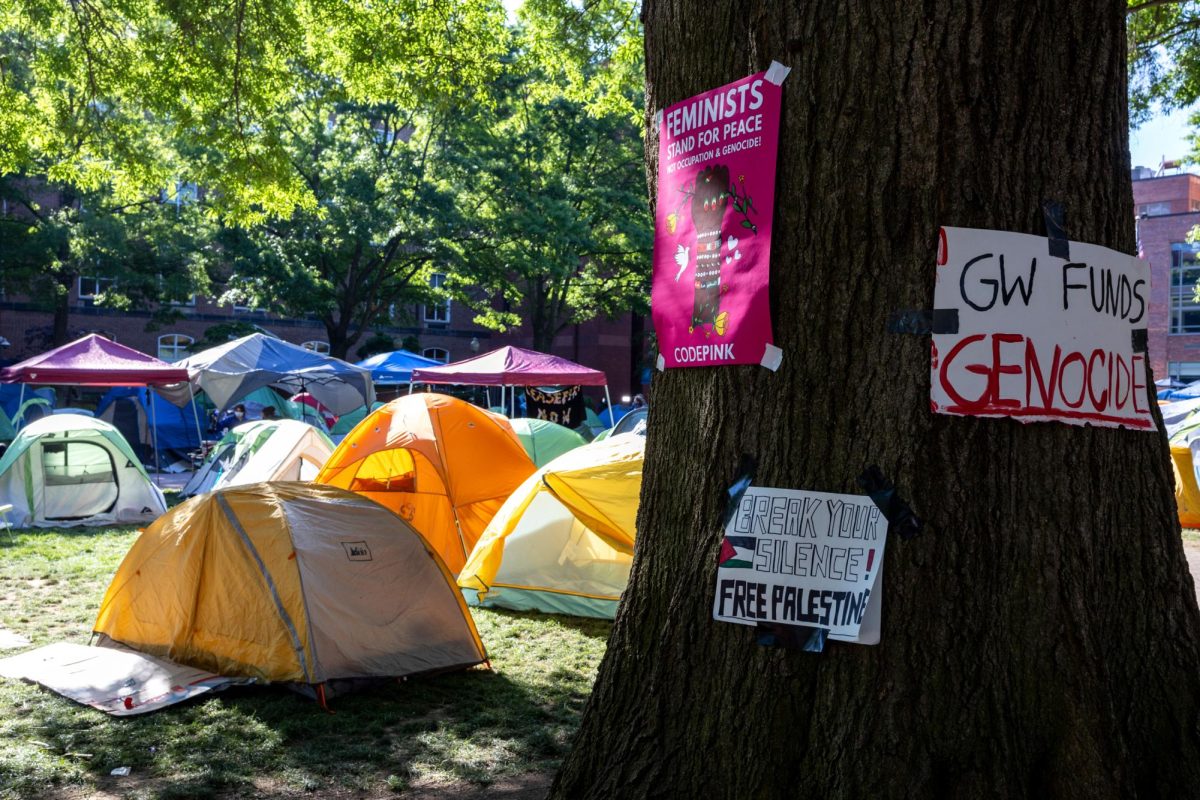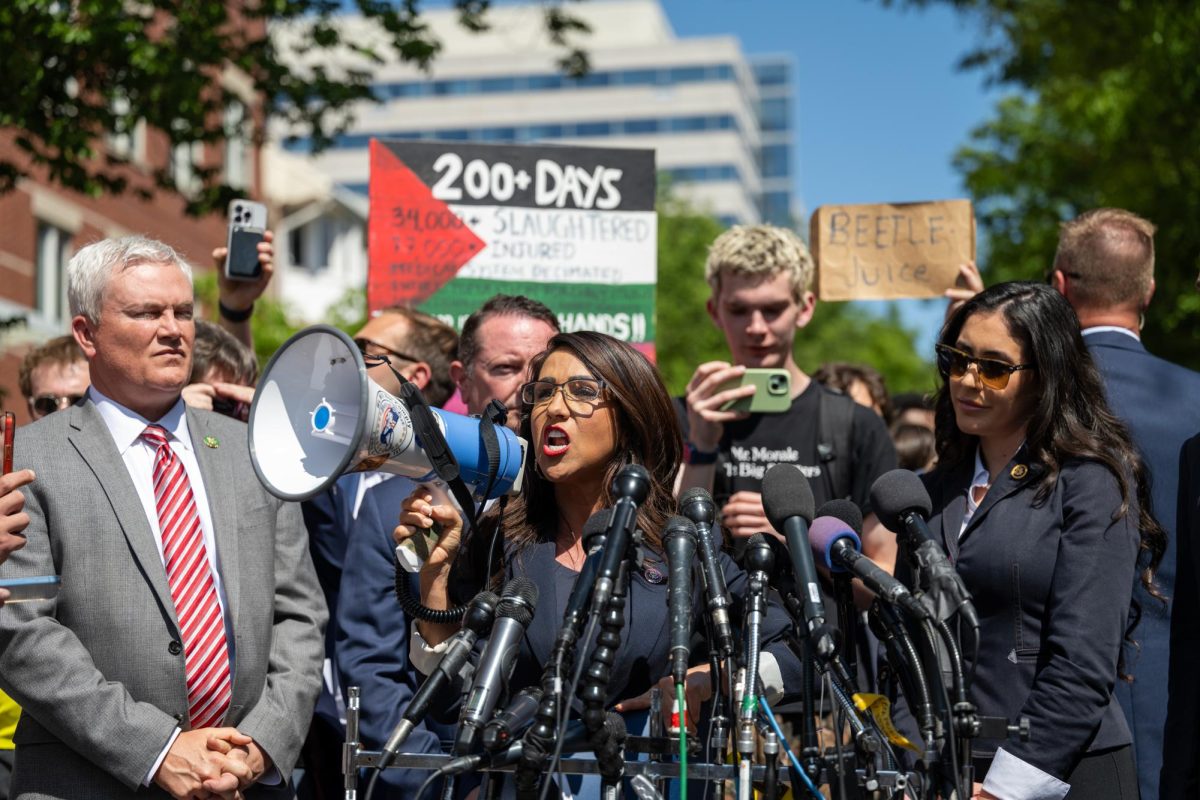A former Student Association diversity and inclusion assembly member launched his campaign to head the organization Monday to boost resources and recognition for Muslim students.
Sophomore Christian Zidouemba, who studies international affairs and international business, said he wants to build connections between students and alumni and allocate meals for Muslim students during religious holidays. Zidouemba said that if elected, he would push to implement a required first-year class covering networking and resume building and increase the number of tutors and advisers available to prepare students for jobs and help them succeed in class.
“This is about the voices of those who have not been heard on this campus,” he said. “This is not about Christian, this is about all of us. This is about making GW a better place for each and every one of us in this University.”
Zidouemba joined the race alongside Sen. George Glass, U-at-Large, who also launched his campaign Monday. He is one of five people in the race for SA president so far, including SA Vice President for Public Affairs Drew Amstutz, Students for Indigenous and Native American Rights President Georgie Britcher, SA Sen. Howard Brookins, U-at-Large, and co-chair of Black Heritage Month Celebration Bishop Walton.
Zidouemba said that if elected, he would advocate for the Multicultural Student Services Center to provide Muslim students with free food to break fasts during Ramadan – the ninth month of the Muslim calendar when many Muslims fast from dawn to sunset. Ramadan will last from April 23 to sundown on May 23 this year.
He said many Muslim students cannot afford to buy food, like Halal meat – meat slaughtered for consumption during religious holidays.
“If the University claims themselves as saying that they embrace diversity and so on, I think the University can do something to make sure that, for the whole entire month of Ramadan, we provide food for the Muslim community in this campus,” he said.
He said he would work to institute a mentorship program in which recent graduates would impart advice about job searches and how to best prepare for career success. Zidouembba said he would push officials to increase the number of networking breakfast sessions hosted in the Elliott School of International Affairs to become a weekly event so students have more opportunities to attend and discuss job search techniques and opportunities.
“If you first come here as a freshman, the University can pair you with alumni who’s in your field of interest,” he said. “By doing so, by the time you’re a sophomore, you already know what you want to do with your life.”
The mentorship program, which would be required for all first-year students and then become an opt-in program, would help students plan for future careers and relieve stress for students nearing graduation, he said.
“As a sophomore, that frustrates me when someone as a senior doesn’t know what they want to do next in their life and they have been at GW paying $75,000 to go to school,” he said.
Zidouemba said he would press officials to mandate that all new students take a one-credit course that would cover topics like resume building and networking during their first semester.
The Elliott School, School of Business and School of Engineering and Applied Science are the only schools that currently require a similar first-year class. Former SA President Ashley Le advocated for a similar one- to two-credit course mandatory for all freshmen about the first-year experience, which covers topics like how to travel around the District.
He added that the course would also include discussions with the MSSC about confronting biases to help prevent racist instances and anti-Semitic occurrences on campus.
“Because I believe that, by engaging students about biases and racism, we can actually diminish the anti-Semitic stuff that’s been going at our University,” Zidouemba said.
Zidouemba said he would work with officials to add 50 student tutors to the University’s free Academic Common’s program and expand the number of tutoring hours available. The program allows students to schedule tutoring sessions online with peers in all areas of study, and every school hosts “drop-in hours” each week.
Zioduemba said he wants more advisers to be added for students in the Columbian College of Arts and Sciences to build more personal connections. Eleven CCAS advisers, who are assigned to a specific group of students based on alphabetized last names, currently oversee undergraduate student advising.
“A lot of my friends told me the advising system kind of extremely sucks,” he said. “What the University can do to improve is by creating a more inclusive academic advising for all students.”
Zioduemba said he has not spoken with officials about his platform but plans to reach out to Vice President of Student Affairs and Dean of the Student Experience Cissy Petty, Chief Financial Officer and Executive Vice President Mark Diaz and the CCAS advising office in the next few weeks.
He added that the SA should create a “student activist liaison” within the association’s executive cabinet to communicate with students leading advocacy efforts on campus and around D.C. Zioduemba said the SA as a whole should help organize spaces for students to hold discussions about national and campus-specific issues, like fossil fuel divestment.
Students participated in a string of protests earlier this month after University President Thomas LeBlanc revealed that 3 percent of GW’s investments are in fossil fuels.
“Oftentimes, I think the SA doesn’t do a great job of making sure that any issues that are going on, people can come in and sit together, talk with different people that have a different ideology about what’s going on in our campus or what’s going on around the world and in D.C. in general,” he said.








